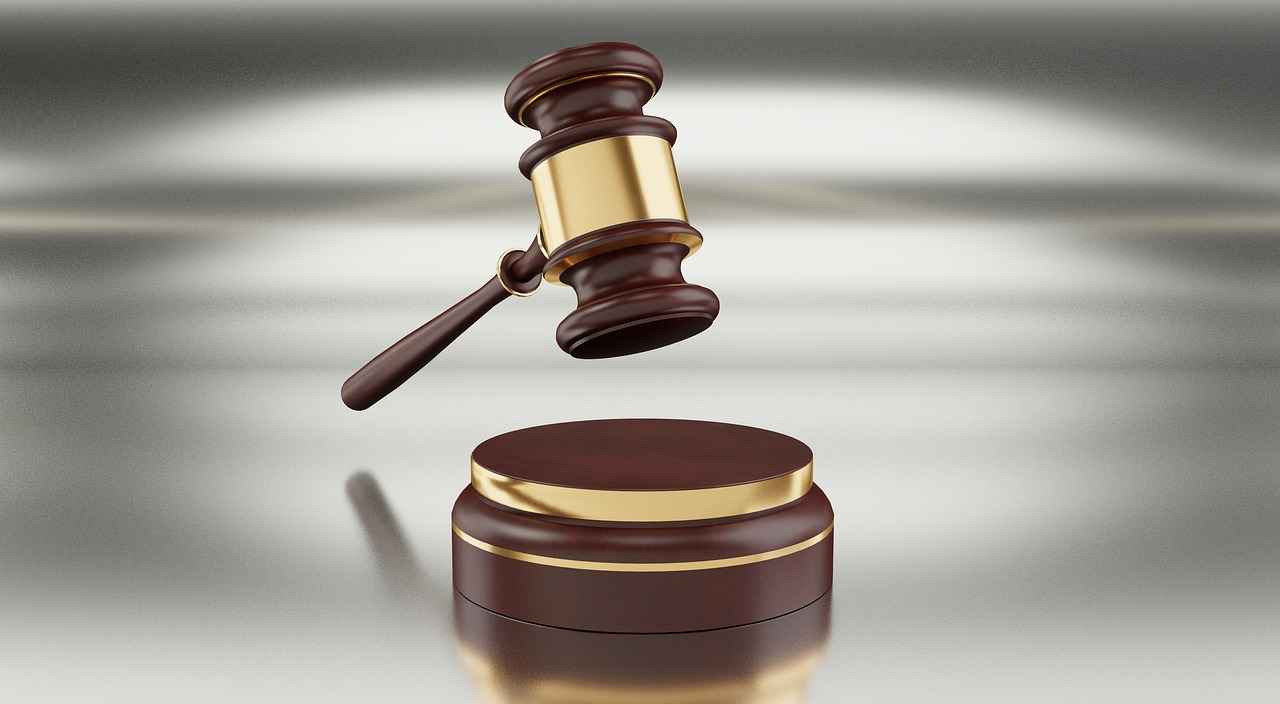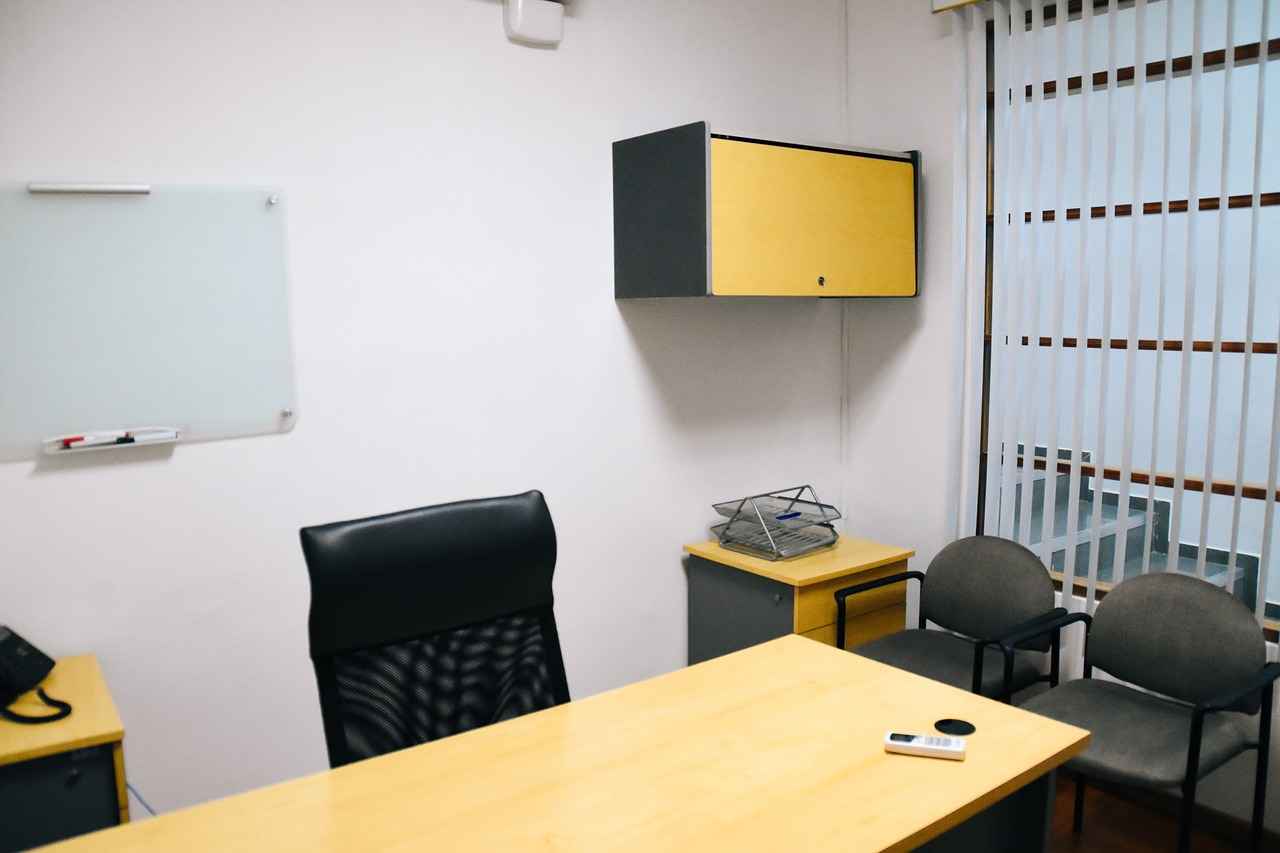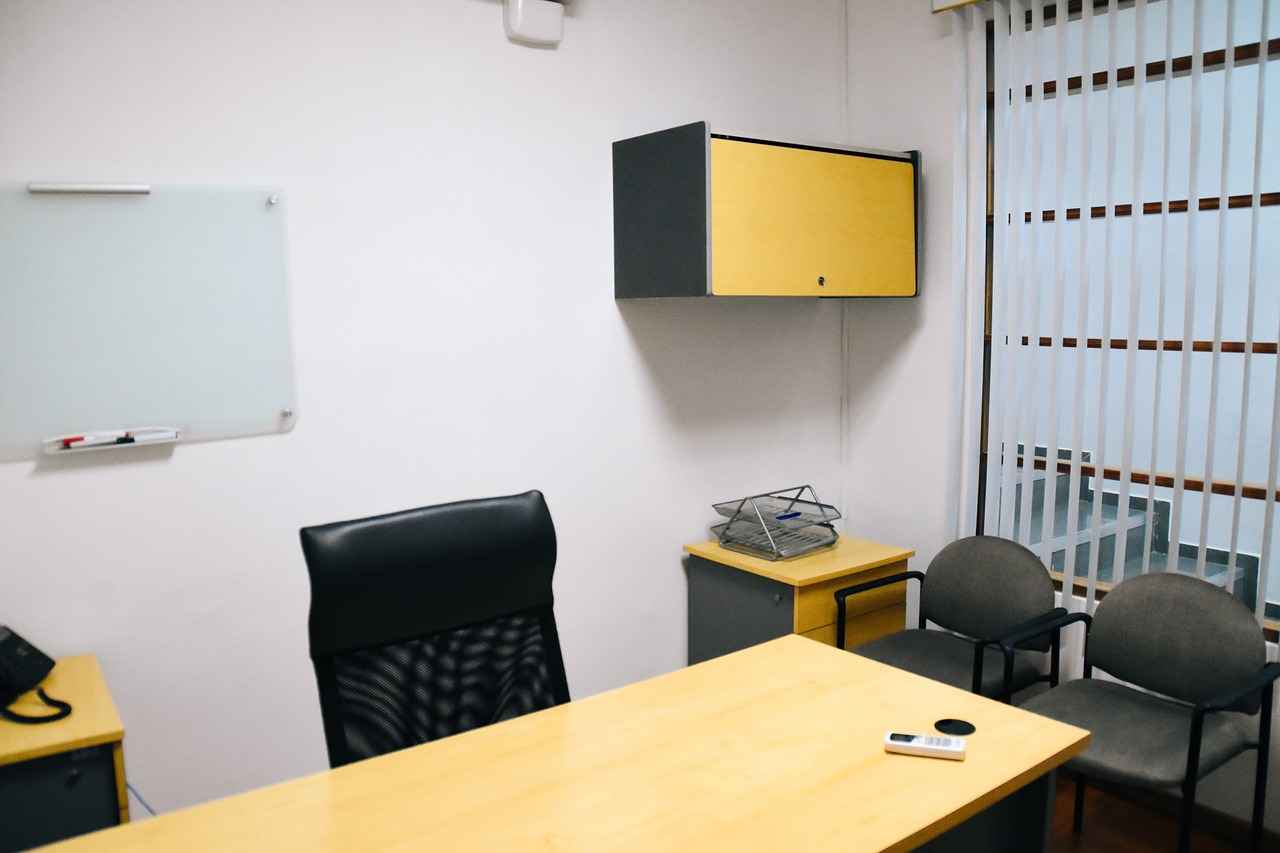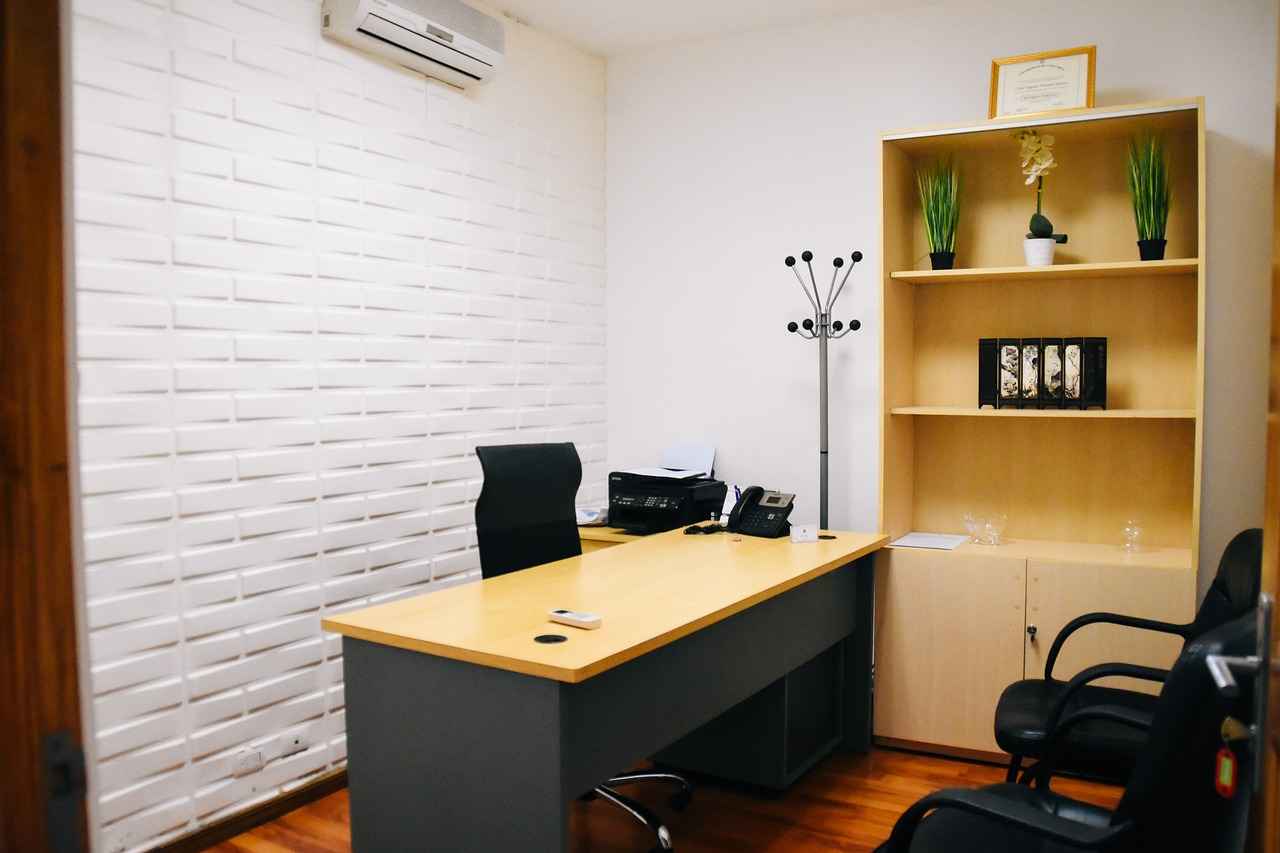This article delves into the most common types of legal cases encountered in the United States and offers expert guidance on how to find the best lawyers and attorneys in Phoenix, Arizona. Whether you are facing a personal injury claim or a complex family law matter, making informed decisions about your legal representation is crucial.
Understanding Common Legal Cases
- Personal Injury: These cases arise from accidents or negligence, resulting in physical or emotional harm.
- Medical Malpractice: Involves negligence by healthcare providers that leads to patient harm.
- Breach of Contract: Disputes arising from the failure to fulfill contractual obligations.
- Property Disputes: Issues related to ownership, boundaries, or landlord-tenant relationships.
- Defamation: Involves false statements that damage a person’s reputation.
- Employment Disputes: Issues such as wrongful termination or discrimination.
- Product Liability: Injuries caused by defective products.
- Wrongful Death: Claims resulting from negligence that leads to a person’s death.
- Criminal Defense: Cases involving drug offenses, theft, and other criminal charges.
- Family Law: Encompasses divorce, child custody, and adoption.
- Bankruptcy: Legal proceedings that allow individuals or businesses to eliminate or repay their debts.
- Immigration: Complex legal processes for visas, residency, and citizenship.
Finding Qualified Lawyers in Phoenix
When seeking legal representation, consider the following steps:
- Research: Utilize online platforms such as Avvo or FindLaw to find local attorneys with ratings and reviews.
- Check Credentials: Look for lawyers who are members of recognized legal associations, such as the American Bar Association or state bar associations.
- Ask for Referrals: Seek recommendations from friends, family, or colleagues who have had similar legal issues.
- Interview Potential Attorneys: Schedule consultations to discuss your case and evaluate their communication skills and approach.
- Review Track Records: Inquire about their experience with cases similar to yours and their success rates.
Red Flags to Avoid
- Attorneys who guarantee specific outcomes.
- Lack of transparency regarding fees and costs.
- Negative reviews or disciplinary actions on their record.
- Unwillingness to provide references from previous clients.
Special Considerations for Major Cities
In bustling metropolitan areas like New York City, Los Angeles, and Chicago, the competition among lawyers can be intense. Here are some tailored tips:
- Utilize Local Bar Associations: Many cities have bar associations that offer referral services to help connect individuals with qualified attorneys.
- Attend Legal Clinics: Many organizations offer free legal clinics where you can gain insights and meet attorneys.
- Leverage Social Media: Platforms like LinkedIn can provide insights into an attorney’s professional background and endorsements.
Conclusion
Finding the right legal representation in Phoenix, Arizona, or any major city requires careful consideration and research. By understanding the common types of legal cases and knowing how to identify qualified attorneys, you can make informed decisions that best serve your legal needs. Prioritize experience, specialization, and client feedback to ensure effective legal representation.

Understanding Common Legal Cases
In the vast landscape of the U.S. legal system, individuals often encounter a variety of legal issues that can be daunting and complex. Understanding these common legal cases is crucial for anyone seeking legal assistance. This article provides an overview of the most frequently encountered legal cases in the United States, including personal injury, criminal offenses, family law, and more, while offering practical guidance on how to find qualified lawyers in major metropolitan areas.
Personal Injury Cases are among the most common types of legal disputes. These cases arise when an individual suffers harm due to another party’s negligence or intentional actions. Victims may seek compensation for medical expenses, lost wages, and pain and suffering. To find a qualified personal injury attorney, look for those with a strong track record in similar cases and positive client reviews. Websites like Avvo and Leagle can provide valuable insights.
Medical Malpractice Claims involve negligence by healthcare professionals, leading to patient harm. These cases require specialized knowledge of medical standards and laws. When searching for a medical malpractice attorney, prioritize those who focus on this area of law and have a history of successful verdicts. Verify their credentials through state bar associations.
Breach of Contract Cases can occur in various contexts, ranging from business agreements to personal contracts. To find a contract lawyer, seek professionals with proven negotiation skills and experience in resolving disputes similar to yours. Online platforms like FindLaw can help you identify qualified attorneys.
Property Disputes often involve issues related to ownership, boundaries, or landlord-tenant relationships. A knowledgeable real estate attorney is essential for navigating these disputes. Look for attorneys who understand local property laws and have a strong history of successful negotiations.
Landlord-Tenant Disputes frequently arise over evictions, repairs, or lease agreements. It’s crucial for both landlords and tenants to understand their rights. When selecting a landlord-tenant lawyer, focus on those who are well-versed in local housing regulations and have positive client testimonials.
Defamation Cases, which include libel and slander, involve false statements that damage reputations. These cases require careful legal strategy, making the choice of attorney critical. Seek lawyers who specialize in defamation and have experience with First Amendment rights.
Employment Disputes can stem from wrongful termination, discrimination, or wage issues. Navigating employment law requires knowledgeable attorneys familiar with both state and federal regulations. Look for lawyers who specialize in employment law and have a strong client feedback history.
Product Liability Cases arise when consumers are injured due to defective products. Experienced attorneys in this field can navigate complex consumer safety laws. When searching for a product liability attorney, prioritize those with a successful track record against manufacturers.
Wrongful Death Cases are emotionally charged and arise when negligence leads to a person’s death. Compassionate and skilled legal representation is essential for pursuing justice. Choose attorneys with experience in wrongful death claims and a history of securing favorable outcomes.
Class Action Lawsuits allow groups to collectively sue for damages from similar grievances. These cases require attorneys who can manage large volumes of evidence and clients effectively. Look for lawyers with experience in class action litigation and a successful history of managing similar cases.
Criminal Defense Cases cover a range of offenses, including drug offenses and violent crimes. Attorneys specializing in criminal law are crucial for protecting clients’ rights and navigating the judicial system. Seek lawyers with a strong understanding of local laws and court procedures.
Family Law Cases encompass divorce, child custody, and adoption. These emotionally charged cases require attorneys who can provide legal expertise and emotional support. When selecting a family law attorney, consider their communication skills and ability to handle sensitive issues.
Bankruptcy Cases offer individuals and businesses a fresh start. Understanding the types of bankruptcy and their implications is essential when seeking legal representation. Look for attorneys who specialize in bankruptcy law and have a thorough understanding of the process.
Immigration Cases involve complex legal processes and regulations. Finding the right attorney is essential for navigating visas, residency, and citizenship applications. Seek attorneys with expertise in immigration law, focusing on their familiarity with current regulations and success in handling similar cases.
In conclusion, understanding the common types of legal cases and knowing how to find qualified attorneys is vital for effective legal representation. Whether you are in New York City, Los Angeles, Chicago, or other major metropolitan areas, prioritize experience, specialization, and client feedback in your search for legal assistance.

Personal Injury Cases
are a significant area of law that arises from accidents or negligence, resulting in either physical or emotional harm to individuals. These cases can stem from a variety of incidents, including automobile accidents, slip and falls, workplace injuries, and medical malpractice. Understanding the intricacies of personal injury law is essential for individuals seeking justice and compensation for their suffering.
In a personal injury case, the injured party, referred to as the plaintiff, must prove that the other party, known as the defendant, was negligent and that this negligence directly caused their injuries. This often involves gathering evidence, such as medical records, witness statements, and accident reports. It’s crucial for plaintiffs to be aware of their legal rights and the potential for compensation, which can cover medical expenses, lost wages, and pain and suffering.
One of the most critical steps in navigating a personal injury case is hiring a qualified attorney. Here are some practical tips for finding the right personal injury lawyer:
- Research Experience: Look for attorneys who specialize in personal injury law and have a proven track record of success in similar cases. Their experience can significantly impact the outcome of your case.
- Check Reviews: Online reviews and testimonials from previous clients can provide insight into an attorney’s reputation and effectiveness. Websites like Avvo and Yelp can be helpful resources.
- Consultations: Many personal injury lawyers offer free consultations. Use this opportunity to discuss your case and evaluate the attorney’s communication style and understanding of your situation.
- Contingency Fees: Most personal injury attorneys work on a contingency fee basis, meaning they only get paid if you win your case. Ensure you understand their fee structure before hiring.
- Professional Associations: Check if the attorney is a member of professional organizations, such as the American Association for Justice or local bar associations, which can indicate a commitment to their practice.
It’s also important to be aware of potential red flags when hiring a personal injury attorney:
- High Pressure Tactics: Be cautious of attorneys who pressure you to sign contracts quickly or make unrealistic promises about the outcome of your case.
- Lack of Transparency: An attorney should be open about their fees, experience, and the process. Avoid those who are vague or unwilling to provide details.
- Limited Communication: Effective communication is key in legal matters. If an attorney is difficult to reach or slow to respond during initial consultations, it may be a sign of future issues.
In conclusion, understanding personal injury cases and knowing how to find a qualified attorney is vital for anyone who has suffered harm due to someone else’s negligence. By conducting thorough research, seeking referrals, and being mindful of potential red flags, individuals can find the right legal representation to help them navigate their case effectively.
Finding Personal Injury Lawyers
When it comes to personal injury cases, securing the right legal representation is crucial for achieving a favorable outcome. The process of finding a personal injury lawyer can be daunting, especially with so many options available. Here are some essential steps to ensure you choose a lawyer with a strong track record in handling your specific case type.
- Research Specialization: Look for lawyers who specialize in personal injury law, as they will have a deeper understanding of the nuances involved in these cases. Specialization can significantly boost your chances of success.
- Examine Track Records: Investigate the lawyer’s history by reviewing their success rates in similar cases. A lawyer with a proven track record in personal injury claims will likely have the skills necessary to navigate your case effectively.
- Read Online Reviews: Utilize platforms like Avvo, Yelp, or Google Reviews to gather insights from previous clients. Pay attention to both positive and negative feedback to get a balanced view of the lawyer’s capabilities.
- Seek Referrals: Ask friends, family, or colleagues for recommendations. Personal referrals can often lead you to trustworthy attorneys who have successfully handled cases similar to yours.
- Schedule Consultations: Most personal injury lawyers offer free initial consultations. Use this opportunity to discuss your case and assess the lawyer’s communication style, expertise, and willingness to answer your questions.
- Assess Communication Skills: Effective communication is vital in any attorney-client relationship. Choose a lawyer who listens to your concerns and explains legal concepts in a way that you can understand.
- Check Credentials: Verify the lawyer’s credentials, including their education, bar admission, and any additional certifications in personal injury law. This information can often be found on their website or through state bar associations.
- Review Fee Structures: Understand how the lawyer charges for their services. Many personal injury lawyers work on a contingency fee basis, meaning they only get paid if you win your case. Ensure you are clear about any fees and costs involved.
- Be Wary of Red Flags: Avoid lawyers who make unrealistic promises or pressure you into making quick decisions. A reputable attorney will provide honest assessments of your case and the potential outcomes.
In conclusion, finding the right personal injury lawyer requires thorough research and consideration. By focusing on specialization, track records, and client feedback, you can make an informed decision that enhances your chances of securing the compensation you deserve. Remember that your choice of attorney can significantly impact the outcome of your case, so take the time to choose wisely.

Medical Malpractice Claims
are a significant area of concern within the healthcare system, as they arise when healthcare professionals fail to provide the standard of care expected, resulting in harm to patients. This negligence can manifest in various forms, such as misdiagnosis, surgical errors, or improper treatment. Victims of medical malpractice often face a daunting legal landscape that requires a comprehensive understanding of both medical and legal standards. Therefore, it is essential for individuals pursuing these claims to find attorneys who are not only knowledgeable but also experienced in this specialized field.
When seeking a medical malpractice attorney, there are several key factors to consider:
- Specialization: Look for attorneys who specialize in medical malpractice law. Their expertise will be crucial in navigating the complexities of your case.
- Experience: Assess the attorney’s experience level. An attorney with a strong track record in medical malpractice cases is more likely to understand the nuances involved.
- Successful Outcomes: Inquire about their history of successful settlements or verdicts in similar cases. This can be a strong indicator of their capability.
- Credentials: Check their educational background, licenses, and any additional certifications in medical malpractice or personal injury law.
- Client Testimonials: Look for reviews and testimonials from previous clients. Positive feedback can provide insight into their professionalism and effectiveness.
Furthermore, it is advisable to conduct interviews with potential attorneys to gauge their approach and compatibility. During these consultations, ask about their strategies for handling your case, including how they intend to gather evidence and whether they have access to medical experts who can support your claim.
In addition, be aware of red flags that may indicate a less-than-reputable attorney:
- Lack of Communication: If an attorney is difficult to reach or slow to respond to inquiries, it may be a sign of poor client service.
- High Pressure Tactics: Be cautious of attorneys who pressure you into signing contracts or making quick decisions without fully explaining the implications.
- Unclear Fee Structures: Ensure that the attorney provides a clear breakdown of their fee structure. Ambiguities can lead to unexpected costs later.
As medical malpractice cases often involve substantial financial stakes, it is crucial to take the time necessary to find the right legal representation. By following these guidelines, individuals can increase their chances of securing a competent attorney who can advocate effectively on their behalf.
In conclusion, navigating the complexities of medical malpractice claims requires not only a thorough understanding of the law but also a skilled attorney who can guide victims through the process. By focusing on specialization, experience, and client feedback, individuals can find the right legal partner to help them seek justice and compensation for their injuries.
Choosing a Medical Malpractice Attorney
When faced with a medical malpractice issue, the importance of finding the right attorney cannot be overstated. Medical malpractice cases are often complex and require specialized knowledge of both legal and medical standards. Here are some essential steps to guide you in selecting a qualified attorney for your case.
- Specialization in Medical Malpractice: Look for attorneys who specifically focus on medical malpractice law. Their expertise will ensure they are familiar with the nuances of medical negligence and the legal standards that apply.
- Experience with Similar Cases: It is crucial to choose an attorney who has a proven track record in handling cases similar to yours. Inquire about their past cases and outcomes to gauge their effectiveness.
- Check Credentials: Verify the attorney’s credentials, including their education, bar admissions, and any certifications in medical malpractice law. This information can often be found on their firm’s website or through legal directories.
- Familiarity with Medical Standards: An attorney who understands medical procedures and standards can better argue the nuances of your case. Ask about their experience working with medical experts and their approach to gathering evidence.
- Client Testimonials and Reviews: Look for online reviews and testimonials from previous clients. This feedback can provide insight into the attorney’s communication skills, professionalism, and success rate.
- Consultation: Many attorneys offer a free initial consultation. Use this opportunity to discuss your case, ask questions, and assess their communication style and willingness to listen.
- Fee Structure: Understand the attorney’s fee structure. Most medical malpractice attorneys work on a contingency basis, meaning they only get paid if you win your case. Ensure you are clear on any potential costs involved.
- Red Flags: Be cautious of attorneys who guarantee specific outcomes, pressure you to sign quickly, or lack transparency in their communication. Trust your instincts—if something feels off, it may be best to continue your search.
By following these guidelines, you can enhance your chances of finding a competent and trustworthy medical malpractice attorney. Remember, the right legal representation can make a significant difference in the outcome of your case.

Breach of Contract Cases
are prevalent in both personal and business contexts, often leading to significant disputes that require legal intervention. A breach occurs when one party fails to fulfill their obligations as outlined in a legally binding agreement. Understanding the nuances of this area of law is crucial for individuals and businesses alike, as it can determine the outcome of financial and relational matters.
These disputes can arise from various scenarios, including business agreements, employment contracts, or even personal transactions such as loans or service agreements. The complexity of each case often depends on the terms of the contract, the nature of the breach, and the damages incurred. Therefore, having a solid grasp of contract law is essential for anyone involved in such disputes.
When seeking to resolve a breach of contract issue, the first step is to find a qualified contract lawyer. Here are some practical tips on how to do this:
- Specialization: Look for attorneys who specialize in contract law. Their expertise will be invaluable in navigating the complexities of your case.
- Track Record: Assess their success rates in similar cases. A lawyer with a history of favorable outcomes can provide confidence in their abilities.
- Client Reviews: Check online reviews and testimonials. Platforms like Avvo or Martindale-Hubbell can offer insights into a lawyer’s reputation.
- Consultation: Many lawyers offer free initial consultations. Use this opportunity to gauge their understanding of your case and their approach to resolving it.
- Communication Skills: Effective communication is crucial. Ensure that the attorney can explain complex legal terms in a way that you can understand.
- Fees and Costs: Be clear about the attorney’s fee structure. Understand whether they charge hourly rates, flat fees, or contingency fees, and ensure that it aligns with your budget.
In addition to these factors, be aware of potential red flags when hiring a contract lawyer:
- Lack of Experience: Avoid attorneys who lack experience in breach of contract cases. Their inexperience can lead to unfavorable outcomes.
- Poor Communication: If an attorney is difficult to reach or does not respond promptly to your inquiries, it may indicate a lack of commitment to your case.
- Unclear Fee Structures: Be cautious of lawyers who are not transparent about their fees. This can lead to unexpected expenses down the line.
In major metropolitan areas like New York City, Los Angeles, and Chicago, the legal market is competitive, and finding the right attorney can be daunting. Utilize local bar association resources, legal aid clinics, and online legal services to find qualified attorneys. Networking events and legal seminars can also serve as platforms to meet potential lawyers.
Ultimately, understanding the intricacies of breach of contract cases and knowing how to find a qualified lawyer can significantly impact the resolution of your legal issues. By following the guidelines outlined above, you can make informed decisions that protect your interests and lead to a favorable outcome.
Finding a Contract Lawyer
When navigating the complexities of contract law, it is essential to find a lawyer who not only specializes in this field but also possesses a strong track record in dispute resolution. Here are some key steps to help you identify the right contract lawyer for your needs:
- Specialization in Contract Law: Start by looking for attorneys who specifically focus on contract law. This specialization ensures they are well-versed in the nuances of contract formation, enforcement, and breach.
- Proven Track Record: Investigate their history of handling contract disputes. Look for lawyers who have successfully resolved cases similar to yours. This can often be gauged through client testimonials or case studies available on their websites.
- Negotiation Skills: Effective negotiation is crucial in contract law. Assess potential lawyers by asking about their negotiation strategies and success rates. A good attorney should be able to articulate how they have successfully negotiated settlements in the past.
- Litigation Approach: While many contract disputes can be resolved through negotiation, some may require litigation. Inquire about the attorney’s approach to litigation and their experience in court. A lawyer who has a solid litigation background can provide you with a strategic advantage if your case goes to trial.
- Client Communication: Effective communication is vital in any attorney-client relationship. Choose a lawyer who is responsive and willing to explain legal concepts in a way that you can understand. This will help you feel more comfortable throughout the legal process.
- Professional Credentials: Verify their credentials, including their education, bar admissions, and any relevant certifications. Membership in professional organizations, such as the American Bar Association, can also be a positive indicator of their commitment to the field.
- Fee Structure: Understanding the attorney’s fee structure is crucial. Some lawyers charge hourly rates, while others may work on a contingency basis. Make sure to clarify this upfront to avoid any surprises later on.
- Red Flags to Avoid: Be cautious of attorneys who make unrealistic promises about outcomes or those who have poor reviews online. Additionally, if a lawyer is unresponsive or evasive during initial consultations, consider it a warning sign.
By following these guidelines, you can significantly enhance your chances of finding a qualified and trustworthy contract lawyer who will effectively represent your interests in any legal matter.

Property Disputes
are a common source of legal contention, often arising from misunderstandings regarding boundaries, ownership rights, or landlord-tenant relationships. These disputes can involve a variety of issues, including boundary disputes, where neighbors disagree on property lines, or ownership disputes, which may arise from inheritance, sales, or unclear titles. Additionally, landlord-tenant issues can encompass disputes over lease agreements, eviction processes, and property maintenance responsibilities.
To effectively navigate these complex legal waters, it is crucial to find a knowledgeable real estate attorney. Here are some tips on how to choose the best legal representation for property disputes:
- Specialization: Look for attorneys who specialize in real estate law. They should have a deep understanding of local property laws and regulations, as these can vary significantly from one jurisdiction to another.
- Experience: Seek attorneys with extensive experience in handling property disputes similar to yours. Their familiarity with the nuances of such cases can make a significant difference in the outcome.
- Client Reviews: Check online reviews and testimonials from previous clients. This feedback can provide insights into the attorney’s effectiveness, communication skills, and overall client satisfaction.
- Consultations: Many attorneys offer free initial consultations. Use this opportunity to discuss your case and gauge their expertise and approach to your specific situation.
- Credentials: Verify the attorney’s credentials, including their education, bar association memberships, and any certifications in real estate law.
- Red Flags: Be wary of attorneys who make unrealistic promises or guarantees regarding the outcome of your case. A reputable attorney will provide a realistic assessment based on their experience and the specifics of your situation.
In addition to these tips, it is also advisable to consider the attorney’s communication style. Effective communication is essential in legal matters, as it ensures that you are kept informed throughout the process and that your concerns are addressed promptly.
Property disputes can be emotionally charged and financially taxing. Therefore, having a competent attorney by your side can alleviate some of the stress associated with these issues. They can help you understand your rights, negotiate settlements, and, if necessary, represent you in court.
Ultimately, the right attorney will not only possess the necessary legal expertise but also exhibit a genuine commitment to advocating for your best interests. By taking the time to research and evaluate potential lawyers, you can significantly improve your chances of a favorable resolution in your property dispute.
Choosing a Real Estate Attorney
When dealing with property-related legal issues, it is crucial to select an attorney who is well-versed in property law. To ensure you receive competent representation, follow these guidelines:
- Experience Matters: Look for attorneys who have extensive experience in handling property law cases. This includes issues related to real estate transactions, zoning laws, and property disputes. An experienced attorney will have a deeper understanding of the complexities involved in property law.
- Local Knowledge: Property laws can vary significantly by location. It is essential to choose an attorney who is familiar with local laws and regulations. This knowledge is vital in navigating issues such as land use, property taxes, and tenant rights.
- Negotiation Skills: Many property disputes can be resolved through negotiation rather than litigation. Assess the attorney’s negotiation skills and their ability to advocate effectively for your interests. Ask about their past experiences in negotiating settlements.
- Litigation Experience: In cases where disputes escalate to litigation, having an attorney with a strong background in litigation is essential. Inquire about their success rate in court and their familiarity with the local judicial system.
- Client Reviews and Testimonials: Research online reviews and testimonials from previous clients. This feedback can provide insights into the attorney’s communication style, effectiveness, and overall client satisfaction.
- Professional Credentials: Verify the attorney’s credentials, including their education, bar admissions, and any specializations in property law. Membership in professional organizations, such as the American Bar Association, can also indicate a commitment to ongoing education and professional standards.
- Clear Communication: Choose an attorney who communicates clearly and is responsive to your inquiries. A good attorney should be able to explain complex legal concepts in a way that you can understand.
- Transparent Fees: Discuss the attorney’s fee structure upfront. Understanding how they charge for their services—whether it’s hourly, flat fees, or contingency-based—will help you avoid unexpected costs later on.
- Red Flags to Avoid: Be cautious of attorneys who make unrealistic promises or guarantees about the outcome of your case. Additionally, if an attorney is unwilling to provide references or has a history of disciplinary actions, consider this a red flag.
In summary, selecting the right real estate attorney requires careful consideration of their experience, local knowledge, negotiation and litigation skills, client feedback, and professional credentials. By following these guidelines, you can ensure that you find a qualified attorney who will effectively represent your interests in any property-related legal matters.

Landlord-Tenant Disputes
are a frequent occurrence in the rental market, often leading to conflicts that can escalate quickly. These disputes can range from issues regarding evictions and repairs to disagreements over lease agreements and security deposits. For both landlords and tenants, understanding their rights and responsibilities is crucial in navigating these challenging situations.
In many cases, misunderstandings arise due to a lack of knowledge about the legal framework governing rental agreements. For instance, landlords must adhere to specific regulations concerning the eviction process, which can vary by state. Conversely, tenants have rights that protect them from unlawful eviction and ensure they live in a habitable environment. Being informed about these rights can help both parties avoid costly legal battles.
- Evictions: Landlords must follow the legal eviction process, which typically requires providing notice to the tenant and, if necessary, filing an eviction lawsuit in court.
- Repairs: Tenants have the right to request necessary repairs, and landlords are obligated to maintain the property in a livable condition.
- Lease Agreements: Both parties should clearly understand the terms outlined in the lease, including payment terms, duration, and rules regarding property use.
When facing a landlord-tenant dispute, finding a qualified landlord-tenant lawyer can significantly impact the outcome. Here are some expert tips on how to find the right legal representation:
- Specialization: Look for attorneys who specialize in landlord-tenant law. Their expertise will provide invaluable insights into local laws and regulations.
- Experience: Seek out lawyers with a proven track record in handling similar cases. Ask about their success rates and experience with the specific issues you are facing.
- Client Reviews: Read online reviews and testimonials from previous clients. This can give you a sense of the attorney’s reputation and effectiveness.
- Consultation: Many attorneys offer free initial consultations. Use this opportunity to discuss your case and gauge the lawyer’s understanding and approach.
- Communication: Choose an attorney who communicates clearly and promptly. A good lawyer should be able to explain complex legal terms in a way that is easy to understand.
- Fees: Understand the attorney’s fee structure upfront. Some may charge hourly rates, while others might work on a contingency basis. Make sure you are comfortable with the financial arrangement.
It’s also important to be aware of red flags when hiring a lawyer. Avoid attorneys who:
- Promise guaranteed outcomes, as no lawyer can predict the result of a case.
- Are vague about their fees or refuse to provide a written agreement.
- Do not have a clear communication plan or are hard to reach.
In conclusion, landlord-tenant disputes are common but can be effectively managed with the right legal support. By understanding your rights and diligently searching for a qualified attorney, you can navigate these disputes more effectively. Whether you are a landlord seeking to enforce your lease agreements or a tenant fighting for your rights, the right legal representation can make all the difference.
Finding a Landlord-Tenant Lawyer
When it comes to landlord-tenant disputes, it is crucial to find a lawyer who not only specializes in landlord-tenant law but also possesses a deep understanding of local housing regulations. These disputes can encompass a range of issues, including evictions, maintenance responsibilities, and lease agreements. Therefore, having a knowledgeable attorney by your side can make a significant difference in the outcome of your case.
To start your search for a qualified landlord-tenant lawyer, consider the following steps:
- Specialization: Look for attorneys who specifically focus on landlord-tenant law. This specialization ensures they are well-versed in the nuances of housing regulations and tenant rights.
- Experience: Seek out lawyers with a proven track record in handling cases similar to yours. An attorney with substantial experience is likely to navigate the complexities of your situation more effectively.
- Local Knowledge: It’s essential to choose a lawyer familiar with local laws and ordinances. Housing regulations can vary significantly from one jurisdiction to another, so local expertise is invaluable.
Next, utilize various resources to evaluate potential attorneys:
- Online Reviews: Websites such as Avvo, Yelp, and Leagle provide client reviews and ratings of attorneys. Pay attention to feedback regarding their communication skills, responsiveness, and overall effectiveness.
- Referrals: Ask friends, family, or colleagues for recommendations. Personal referrals can provide insights into an attorney’s strengths and weaknesses from someone you trust.
- Bar Association Listings: Consult your local or state bar association for a list of qualified attorneys. Many bar associations offer referral services that can connect you with specialists in landlord-tenant law.
Once you have narrowed down your options, consider scheduling consultations. During these meetings, ask the following questions:
- What is your experience with landlord-tenant disputes? Inquire about their specific experience and success rate in handling similar cases.
- What is your approach to resolving disputes? Understanding their strategy will help you gauge whether their style aligns with your expectations.
- What are your fees? Ensure you have a clear understanding of their billing structure, including retainer fees and hourly rates.
Moreover, be aware of red flags that may indicate a less-than-reliable attorney:
- Lack of Communication: If an attorney is unresponsive or difficult to reach during the initial consultation, it may be a sign of future communication issues.
- Vague Answers: Be cautious of lawyers who provide unclear or evasive answers to your questions. A competent attorney should be able to articulate their approach and experience clearly.
- High Pressure Tactics: Avoid attorneys who pressure you into making quick decisions or signing contracts without ample time to review.
In summary, finding the right landlord-tenant lawyer requires diligent research and careful consideration. By focusing on specialization, experience, and local knowledge, and by leveraging online reviews and referrals, you can identify a trustworthy attorney who will advocate for your rights effectively. Remember to ask pertinent questions during consultations and be wary of any red flags that may arise. Your choice of legal representation can significantly impact the resolution of your landlord-tenant dispute.

Defamation Cases
are a critical area of law that deals with false statements made about an individual or entity that can cause significant harm to their reputation. These statements can take the form of libel, which refers to written defamation, or slander, which pertains to spoken defamation. The impact of such cases can be profound, affecting not only personal relationships but also professional opportunities and financial stability.
When pursuing a defamation claim, it is essential to understand the legal standards involved. In the United States, the burden of proof typically lies with the plaintiff, who must demonstrate that the statement was false, damaging, and made with a certain level of fault (negligence or actual malice, depending on whether the plaintiff is a public figure). This complexity necessitates a well-thought-out legal strategy, making the selection of a qualified attorney absolutely critical.
To find the best defamation lawyer, consider the following guidelines:
- Specialization: Look for attorneys who specialize in defamation law. Their focused expertise will be invaluable in navigating the nuances of your case.
- Experience: Seek lawyers with a proven track record in handling defamation cases. Ask about their history of settlements and verdicts in similar situations.
- Understanding of First Amendment Rights: A knowledgeable attorney should have a solid grasp of First Amendment protections, which can significantly impact the outcome of defamation claims.
- Client Testimonials: Check online reviews and testimonials from previous clients to gauge their satisfaction and the attorney’s effectiveness.
- Initial Consultation: Most attorneys offer a free initial consultation. Use this opportunity to assess their communication style, understanding of your case, and overall approach.
Additionally, be aware of potential red flags when selecting a lawyer:
- Vague Promises: Be cautious of attorneys who guarantee specific outcomes. Legal cases, especially defamation, can be unpredictable.
- Lack of Transparency: A good attorney should be open about their fees, potential costs, and the legal process involved.
- Unclear Communication: If an attorney struggles to explain legal concepts or does not listen to your concerns, it may be a sign to look elsewhere.
In major metropolitan areas such as New York City, Los Angeles, and Chicago, finding an attorney with the right expertise can involve additional considerations due to the competitive legal landscape. Utilize platforms like Avvo, FindLaw, or Martindale-Hubbell to research and compare lawyers based on their qualifications, client reviews, and professional ratings.
In conclusion, navigating a defamation case requires not only a solid understanding of the legal framework but also the right legal representation. By focusing on specialization, experience, and client feedback, individuals can find a qualified attorney who can effectively advocate for their rights and help restore their reputation.
Choosing a Defamation Lawyer
When dealing with defamation cases, which encompass both libel and slander, it is crucial to find an attorney who not only understands the complexities of these cases but also possesses a deep knowledge of the First Amendment rights. Defamation involves false statements that damage an individual’s or entity’s reputation, and the legal strategies required can be intricate and nuanced.
To begin your search for a qualified defamation lawyer, consider the following key factors:
- Specialization: Look for attorneys who specialize in defamation law. Their expertise will ensure they are familiar with the latest legal precedents and strategies that can be advantageous in your case.
- Experience: It is essential to evaluate their experience in handling defamation cases similar to yours. An attorney with a proven track record in successful litigations can significantly impact your case’s outcome.
- Understanding of First Amendment Rights: Given that defamation cases often involve complex interactions with free speech laws, ensure that your attorney has a strong grasp of how the First Amendment applies to your situation.
- Client Reviews and Testimonials: Research online reviews and seek testimonials from previous clients. This can provide insight into the attorney’s effectiveness, communication skills, and overall client satisfaction.
- Initial Consultation: Many attorneys offer a free initial consultation. Use this opportunity to assess their approach, ask questions about their experience with defamation cases, and gauge their understanding of your specific situation.
Furthermore, be mindful of potential red flags when selecting a defamation attorney:
- Lack of Transparency: If an attorney is unwilling to discuss their fees, experience, or past cases, consider this a warning sign. Transparency is crucial in establishing trust.
- Pressure Tactics: Be wary of attorneys who pressure you to sign agreements or make hasty decisions. A reputable lawyer will give you time to consider your options.
- Inconsistent Communication: If you find it challenging to communicate with the attorney during the initial stages, this could indicate future difficulties in your working relationship.
In metropolitan areas such as New York City, Los Angeles, and Chicago, the competition among legal professionals can be fierce. Utilize online legal platforms such as Avvo, FindLaw, or Justia to compare attorneys based on their ratings, specialties, and client feedback. Additionally, local bar associations often provide referral services that can connect you with qualified attorneys in your area.
In conclusion, choosing the right defamation lawyer requires careful consideration of their expertise, experience, and communication style. By following these guidelines and being aware of potential pitfalls, you can make a more informed decision that will ultimately benefit your case.

Employment Disputes
are a significant concern in today’s workforce, often stemming from issues such as wrongful termination, discrimination, and wage disputes. These conflicts can arise in various forms, creating a complex landscape for both employees and employers. Understanding the intricacies of employment law is essential, as it encompasses a wide range of regulations at both the state and federal levels. For individuals facing these challenges, seeking the assistance of knowledgeable attorneys is crucial.
When looking for an employment lawyer, consider the following steps to ensure you find the right representation:
- Specialization: Look for attorneys who specialize in employment law. This area of law is nuanced, and having a lawyer who is well-versed in it can significantly impact the outcome of your case.
- Experience: Seek lawyers with a solid track record in handling cases similar to yours. An attorney’s experience can provide invaluable insights into the likely outcomes and strategies.
- Client Reviews: Check online reviews and testimonials from previous clients. This feedback can give you an idea of the attorney’s effectiveness and how they handle client relationships.
- Consultation: Many attorneys offer free initial consultations. Use this opportunity to gauge their expertise, approach, and whether you feel comfortable working with them.
- Credentials: Verify their credentials, including their education, bar association memberships, and any special certifications related to employment law.
- Communication: Ensure that the attorney communicates clearly and promptly. Effective communication is essential for a successful attorney-client relationship.
- Fee Structure: Discuss the fee structure upfront. Understand whether they charge a flat fee, hourly rate, or work on a contingency basis, and ensure you are comfortable with the terms.
In metropolitan areas like New York City, Los Angeles, and Chicago, the competition among legal professionals can be intense. Therefore, it’s essential to be thorough in your research. Utilize platforms like Avvo, FindLaw, or Lawyers.com to compare attorneys based on their specialties, client ratings, and overall experience.
While searching for the right attorney, be cautious of red flags that may indicate a less-than-reputable lawyer:
- Unclear Fees: Be wary of attorneys who are not transparent about their fees or who pressure you into signing contracts without thoroughly explaining the terms.
- Lack of Communication: If an attorney is unresponsive during the initial consultation, this may indicate future communication issues.
- No Clear Strategy: A competent attorney should be able to outline a clear strategy for your case. If they cannot articulate how they would approach your situation, consider looking elsewhere.
- Negative Reviews: Consistently poor reviews or complaints about a lawyer’s conduct can be a significant warning sign.
In conclusion, navigating employment disputes requires a strategic approach to finding the right legal representation. By focusing on specialization, experience, and client feedback, you can make an informed decision that protects your rights in the workplace. Remember, the right attorney will not only understand the law but will also advocate for your best interests, helping you achieve a favorable resolution to your employment issues.
Finding an Employment Lawyer
When seeking legal representation for employment disputes, it is essential to find an attorney who specializes in employment law. This area of law encompasses various issues such as wrongful termination, workplace discrimination, wage disputes, and harassment. Given the complexities of employment law, hiring an attorney with a solid background and experience in handling similar cases is crucial.
Start your search by looking for attorneys who have a proven track record in employment law. Check their experience with cases similar to yours, as this can significantly impact the outcome of your situation. An attorney who has successfully represented clients in cases involving wrongful termination, for instance, will be more adept at navigating the nuances of your specific issue.
Additionally, it is vital to ensure that the attorney is familiar with local labor laws. Employment laws can vary significantly from state to state, and having an attorney who understands the specific regulations in your area can make a substantial difference in your case. For example, in Phoenix, Arizona, laws regarding employee rights and employer obligations may differ from those in New York or California.
Client testimonials and reviews can provide invaluable insights into the attorney’s capabilities and reliability. Look for online reviews on platforms such as Avvo, Martindale-Hubbell, or Google Reviews. These platforms often allow clients to share their experiences, which can help you gauge the attorney’s effectiveness, communication style, and overall satisfaction level of past clients.
Furthermore, consider scheduling a consultation with potential attorneys. Many lawyers offer free initial consultations, which can give you an opportunity to discuss your case and assess the attorney’s approach. During this meeting, pay attention to how the attorney communicates and whether they take the time to understand your concerns. A good attorney should be able to explain complex legal concepts in a way that is easy to understand.
While searching for an attorney, be wary of red flags. These can include attorneys who make unrealistic promises about the outcome of your case or those who seem more interested in settling quickly rather than pursuing the best possible outcome for you. Additionally, be cautious of attorneys who lack transparency regarding their fees or those who do not provide a clear retainer agreement.
In summary, finding the right employment lawyer involves thorough research and careful consideration. Focus on attorneys with relevant experience, local knowledge, and positive client feedback. By taking the time to find a qualified attorney, you can ensure that your rights are protected and that you receive the best possible representation in your employment dispute.

Product Liability Cases
are a significant area of law that addresses injuries or damages caused by defective products. These cases can arise from various issues, including design defects, manufacturing flaws, or inadequate warnings about potential hazards. When consumers purchase products, they have the right to expect that those products are safe for use. Unfortunately, when products fail to meet safety standards, the consequences can be devastating.
In the realm of product liability, the legal framework is often complex, requiring a deep understanding of consumer safety laws and regulations. This is why it is crucial to seek out attorneys who specialize in this field. Experienced attorneys can navigate the intricate legal landscape, ensuring that victims receive the compensation they deserve for their injuries.
When searching for a product liability attorney, consider the following guidelines:
- Experience: Look for attorneys with a proven track record in handling product liability cases. Their experience can greatly influence the outcome of your case.
- Specialization: Choose lawyers who focus specifically on product liability law, as they will have the necessary expertise to tackle the unique challenges these cases present.
- Success Rate: Investigate the attorney’s success rate in similar cases. This information can often be found through online reviews or legal directories.
- Client Testimonials: Reading testimonials from previous clients can provide insight into the attorney’s communication skills, professionalism, and overall effectiveness.
- Consultation: Many attorneys offer free initial consultations. Use this opportunity to ask questions about their experience and approach to your specific case.
It is also important to be aware of red flags when hiring a product liability attorney:
- Lack of Transparency: If an attorney is unwilling to discuss their fees or provide clear information about their services, consider it a warning sign.
- Pressure Tactics: Be cautious of attorneys who push you to make quick decisions without allowing you time to consider your options.
- Poor Communication: Effective communication is key in any legal matter. If an attorney does not respond promptly to your inquiries, it may indicate a lack of dedication to your case.
In addition to these tips, utilizing various platforms can enhance your search for a qualified product liability attorney:
- Legal Directories: Websites like Avvo, FindLaw, and Martindale-Hubbell provide listings of attorneys along with ratings and reviews.
- State Bar Associations: Check with your state’s bar association for referrals and to ensure the attorney is in good standing.
- Social Media and Online Reviews: Platforms like LinkedIn and Google Reviews can offer insights into an attorney’s reputation and client satisfaction.
In conclusion, product liability cases can be complex and challenging, but with the right legal representation, victims can pursue justice and compensation for their injuries. By focusing on experience, specialization, and client feedback, individuals can find the most qualified and trustworthy attorneys to handle their product liability claims effectively.
Choosing a Product Liability Attorney
When it comes to product liability cases, the stakes can be incredibly high. These cases often involve serious injuries resulting from defective products, making it essential to have the right legal representation. Therefore, when , consider the following guidelines to ensure you select a qualified professional who can effectively advocate for your rights.
- Specialization in Product Liability: Look for attorneys who specialize specifically in product liability law. This area of law requires a deep understanding of consumer safety regulations and the legal standards applicable to manufacturers and distributors.
- Track Record of Success: Investigate the attorney’s history of successful litigation against manufacturers. A strong history of favorable outcomes in similar cases is a good indicator of their capability. Ask for case studies or examples of past successes.
- Experience with Complex Legal Frameworks: Product liability cases can involve intricate legal frameworks, including federal and state laws. Ensure your attorney has significant experience navigating these complexities, as this can greatly impact the outcome of your case.
- Client Testimonials and Reviews: Research online reviews and client testimonials to gauge the attorney’s reputation. Websites like Avvo, Martindale-Hubbell, and Google Reviews can provide valuable insights into the experiences of previous clients.
- Initial Consultation: Many attorneys offer free initial consultations. Use this opportunity to assess their communication skills, approach to your case, and overall demeanor. A good attorney should be able to explain the legal process in a way that is easy to understand.
- Professional Affiliations: Check if the attorney is a member of relevant professional organizations, such as the American Association for Justice or local bar associations. Membership in these groups often indicates a commitment to staying updated on legal trends and best practices.
- Fee Structure: Understand the attorney’s fee structure upfront. Many product liability attorneys work on a contingency fee basis, meaning they only get paid if you win your case. Ensure you are clear about any potential costs involved.
- Communication and Availability: Choose an attorney who is responsive and easy to communicate with. You should feel comfortable reaching out with questions or concerns throughout the legal process.
- Red Flags: Be cautious of attorneys who make unrealistic promises about case outcomes or those who pressure you to make quick decisions. Trustworthy attorneys will provide honest assessments and allow you to make informed choices.
In summary, when selecting a product liability attorney, prioritize specialization, experience, and a proven track record. By following these guidelines, you can enhance your chances of finding a qualified legal professional who will diligently work to protect your rights and seek the compensation you deserve.

Wrongful Death Cases
represent one of the most tragic outcomes of negligence, where the actions or inactions of an individual or entity lead to the untimely death of another person. These cases can arise from a variety of circumstances, including automobile accidents, medical malpractice, workplace accidents, or defective products. The emotional toll on families and loved ones is immense, and pursuing justice through legal means can be a vital step in the healing process.
In wrongful death claims, the surviving family members may seek compensation for lost wages, funeral expenses, medical bills incurred prior to death, and emotional suffering. It is essential to understand that these cases are often complex, requiring not only a thorough understanding of the law but also a compassionate approach to the sensitive nature of the situation.
Finding a Wrongful Death Lawyer is a critical step in navigating these challenging waters. Here are some practical tips to ensure you choose the right legal representation:
- Look for Experience: Seek attorneys who specialize in wrongful death cases and have a proven track record of successful outcomes. Their experience will be invaluable in building a strong case.
- Check Credentials: Verify the lawyer’s qualifications, including their education, licensing, and any relevant certifications. Membership in professional organizations, such as the American Association for Justice, can also indicate a commitment to their practice.
- Read Client Reviews: Online reviews and testimonials can provide insights into a lawyer’s reputation and effectiveness. Look for patterns in feedback regarding their communication, empathy, and success rates.
- Initial Consultation: Many attorneys offer a free initial consultation. Use this opportunity to discuss your case, gauge their understanding, and assess whether you feel comfortable working with them.
- Assess Communication Skills: Choose a lawyer who communicates clearly and compassionately. You want someone who will keep you informed and answer your questions throughout the legal process.
- Avoid Red Flags: Be cautious of attorneys who make unrealistic promises, pressure you to sign agreements quickly, or have a history of disciplinary actions. Trust your instincts—if something feels off, it’s worth exploring other options.
Furthermore, consider the geographical context of your search. In major metropolitan areas like New York City, Los Angeles, and Chicago, the competition among lawyers can be intense. However, this also means you have a wealth of options to choose from. Utilize local bar association directories, online legal platforms, and personal referrals to compile a list of potential attorneys.
Additionally, wrongful death cases often involve intricate legal nuances, including statutes of limitations that dictate how long you have to file a claim. It’s critical to engage a lawyer promptly to ensure all necessary legal actions are taken within the required timeframes.
Finally, remember that pursuing a wrongful death claim is not just about compensation; it’s also about holding responsible parties accountable and seeking justice for your loved one. A skilled attorney can help you navigate this difficult journey, providing not only legal expertise but also the compassion and support needed during such a challenging time.
Finding a Wrongful Death Lawyer
When faced with the tragedy of losing a loved one due to someone else’s negligence, finding the right legal representation becomes a crucial step toward seeking justice. Wrongful death cases are not only legally complex but also emotionally charged, requiring attorneys who possess both legal expertise and the ability to handle sensitive issues with compassion.
To find a wrongful death lawyer who meets these criteria, consider the following steps:
- Experience in Wrongful Death Cases: Look for attorneys who specialize in wrongful death law. Their experience is invaluable, as they will be familiar with the intricacies of such cases and the specific laws that apply in your state.
- Track Record: Research their history of securing settlements or verdicts for families in similar situations. A proven track record can provide reassurance regarding their capability to handle your case effectively.
- Compassion and Sensitivity: The emotional toll of a wrongful death case is significant. Choose an attorney who demonstrates empathy and understands the delicate nature of your situation. This can make a substantial difference in your overall experience.
- Initial Consultation: Take advantage of free consultations offered by many attorneys. This meeting allows you to assess their communication style, approach to your case, and overall demeanor. It is essential to feel comfortable discussing your situation with them.
- Client Testimonials: Seek out reviews and testimonials from previous clients. Positive feedback can provide insight into the attorney’s effectiveness and how they handle cases. Look for patterns in feedback that highlight their strengths and weaknesses.
- Fee Structure: Understand the attorney’s fee structure upfront. Many wrongful death lawyers work on a contingency fee basis, meaning they only get paid if you win your case. Ensure you are clear on how fees will be handled to avoid surprises later.
- Professional Affiliations: Check if the lawyer is a member of professional organizations, such as the American Association for Justice or local bar associations. Membership in these groups often indicates a commitment to staying updated on legal developments and best practices.
In addition to these considerations, it is important to be aware of potential red flags when selecting an attorney:
- Lack of Specialization: Avoid attorneys who do not specialize in wrongful death cases. General practitioners may not have the necessary expertise to navigate the complexities of such cases.
- Poor Communication: If an attorney is unresponsive or fails to communicate clearly during initial consultations, it may indicate potential issues down the line.
- High Pressure Tactics: Be cautious of attorneys who pressure you into making quick decisions or signing contracts without giving you adequate time to consider your options.
- Negative Reviews: Pay attention to any recurring negative feedback regarding an attorney’s performance. Consistent complaints can be a warning sign about their capabilities.
Ultimately, choosing the right wrongful death lawyer is a critical decision that can significantly impact the outcome of your case. By focusing on experience, empathy, and proven success, you can find an attorney who will advocate for your rights and help you navigate this challenging time.

Class Action Lawsuits
represent a powerful legal mechanism that allows a group of individuals to collectively seek justice for similar grievances. These lawsuits are particularly important when the damages suffered by each individual may be too small to warrant a separate lawsuit, thus enabling the pooling of resources and legal representation. However, navigating the complexities of class action litigation requires skilled attorneys who can manage extensive evidence and coordinate with numerous clients.
In the realm of class action lawsuits, the process can be intricate and demanding. It often involves a detailed examination of the facts, the identification of common issues among the plaintiffs, and the formulation of a cohesive legal strategy. For individuals considering joining a class action, it is crucial to understand the nuances involved. Class actions can arise from various issues, including consumer fraud, environmental disasters, and corporate misconduct.
When seeking a qualified class action attorney, there are several key factors to consider:
- Experience: Look for attorneys who have a proven track record in handling class action cases. Their experience will be invaluable in navigating the complexities of such lawsuits.
- Success Rate: Research the attorney’s history of successful outcomes in class action suits. A high success rate can indicate their ability to effectively advocate for their clients.
- Resources: Class action lawsuits often require substantial resources, including expert witnesses and extensive research. Ensure that the attorney has the necessary resources to handle your case effectively.
- Client Communication: Choose an attorney who prioritizes clear communication. You should feel comfortable discussing your concerns and asking questions throughout the legal process.
- Reputation: Investigate the attorney’s reputation within the legal community. Online reviews, testimonials, and referrals from trusted sources can provide valuable insights.
One effective way to find a qualified class action attorney is through legal directories and platforms that specialize in attorney listings. Websites such as Avvo and FindLaw allow users to search for attorneys based on their specific needs and read reviews from past clients. Additionally, local bar associations often have referral services that can connect you with experienced attorneys in your area.
As you evaluate potential attorneys, be wary of red flags that may indicate a lack of professionalism or expertise. Avoid attorneys who:
- Make unrealistic promises about the outcome of your case.
- Have a history of disciplinary actions or complaints.
- Do not provide clear information about their fees and billing practices.
- Show a lack of responsiveness or communication during the initial consultation.
In conclusion, class action lawsuits can serve as a vital tool for individuals seeking justice against large corporations or entities. By taking the time to research and choose a qualified class action attorney, you can increase your chances of a favorable outcome while ensuring that your rights and interests are adequately represented. Remember, the right attorney can make all the difference in navigating the complexities of the legal system.
Choosing a Class Action Attorney
When it comes to pursuing a class action lawsuit, the choice of attorney can significantly impact the outcome of your case. Finding the right legal representation is crucial, as class action lawsuits are inherently complex and require specialized knowledge and experience. Here are some essential tips to help you choose the best class action attorney for your needs.
- Experience in Class Action Lawsuits: Seek attorneys who have a proven track record in managing class action cases. Their familiarity with the unique challenges of these lawsuits, including the ability to represent a large group of plaintiffs, is vital.
- Successful History: Investigate the attorney’s history of successful outcomes in similar cases. Look for evidence of settlements or verdicts that demonstrate their capability to effectively advocate for their clients.
- Knowledge of Relevant Laws: Class action lawsuits often involve intricate legal principles. Ensure that your attorney is well-versed in the specific laws related to your case, whether it involves consumer rights, securities fraud, or employment discrimination.
- Communication Skills: Effective communication is key in class action lawsuits, where multiple parties are involved. Your attorney should be able to clearly articulate the legal process, keep you informed of developments, and address any concerns you may have.
- Resources and Support Staff: Class action cases often require substantial resources, including expert witnesses and extensive documentation. Choose an attorney who has access to the necessary resources and a capable support team to assist with the case.
- Client Testimonials: Look for reviews and testimonials from previous clients. This feedback can provide insight into the attorney’s professionalism, responsiveness, and overall effectiveness.
- Contingency Fee Structure: Many class action attorneys work on a contingency fee basis, meaning they only get paid if you win your case. Ensure you understand the fee structure and any associated costs before proceeding.
- Initial Consultation: Take advantage of initial consultations to gauge the attorney’s expertise and approach. Prepare questions about their experience, strategy, and how they plan to handle your case.
In conclusion, selecting the right class action attorney requires careful consideration of their experience, track record, and communication style. By following these guidelines, you can enhance your chances of finding a qualified attorney who can effectively represent your interests in a class action lawsuit.

Criminal Defense Cases
encompass a wide range of offenses, including drug offenses, violent crimes, and other serious allegations. The stakes are incredibly high in these matters, making it essential for individuals facing such charges to secure the services of attorneys who possess a deep understanding of criminal law. These legal professionals play a crucial role in protecting clients’ rights and ensuring they receive a fair trial.
When searching for a criminal defense attorney, it is vital to consider several factors to ensure you select the most qualified individual for your case:
- Specialization: Look for attorneys who specialize in criminal defense. Their focused knowledge of laws and regulations will be invaluable in navigating the complexities of your case.
- Experience: An attorney with years of experience in the field will have a better understanding of local court systems, judges, and prosecutors, which can significantly influence the outcome of your case.
- Track Record: Review their past case results. A lawyer with a history of successful defenses in similar cases can provide confidence in their ability to handle your situation.
- Client Reviews: Seek out testimonials and reviews from previous clients. Positive feedback can indicate a lawyer’s effectiveness and dedication to their clients.
- Communication: Choose an attorney who communicates clearly and promptly. You need someone who will keep you informed and explain your options thoroughly.
Additionally, it is essential to be aware of red flags during your search:
- High Pressure Tactics: Be cautious of attorneys who rush you into making decisions or pressure you to sign contracts without giving you adequate time to review.
- Vague Promises: Avoid lawyers who make unrealistic promises about the outcome of your case. A reputable attorney will provide a clear and honest assessment of your situation.
- Lack of Transparency: Ensure that the attorney is open about their fees and billing practices. Hidden fees can lead to misunderstandings and financial strain.
In major metropolitan areas like New York City, Los Angeles, and Chicago, you can utilize various methods to find qualified criminal defense lawyers:
- Online Legal Directories: Websites like Avvo and FindLaw allow you to search for attorneys by specialization and location, providing ratings and reviews.
- Bar Association Referrals: State and local bar associations often have referral services that can connect you with qualified attorneys in your area.
- Personal Recommendations: Ask friends, family, or colleagues for recommendations. Personal experiences can guide you toward trustworthy legal professionals.
In conclusion, criminal defense cases require careful consideration when selecting an attorney. By focusing on specialization, experience, and client feedback while being mindful of red flags, individuals can find skilled legal representation that will advocate for their rights. Remember, the right attorney can make a significant difference in the outcome of your case.
Finding a Criminal Defense Lawyer
When facing criminal charges, the stakes are incredibly high, and having the right legal representation can make all the difference in the outcome of your case. who is not only experienced but also well-versed in local laws and court procedures is essential.
Start your search by looking for attorneys who specialize in criminal defense. These professionals should have a proven track record in handling cases similar to yours, whether they involve drug offenses, theft, assault, or more serious charges like homicide. A specialized attorney will understand the nuances of the law and how it applies to your situation.
One effective method to find qualified criminal defense lawyers is to utilize online legal directories such as Avvo, FindLaw, or Martindale-Hubbell. These platforms allow you to filter attorneys based on their specialties, client reviews, and peer endorsements. Pay attention to their ratings and read through client testimonials to gauge their effectiveness and reliability.
Additionally, consider reaching out to local bar associations, which often provide referral services. These associations can connect you with attorneys who have been vetted for their qualifications and experience in criminal law.
When evaluating potential lawyers, inquire about their experience with cases similar to yours. Ask about their success rates and how they approach case strategy. A good attorney should be able to explain their plan for your defense clearly and confidently.
Credentials are also crucial. Look for attorneys who are members of professional organizations, such as the National Association of Criminal Defense Lawyers (NACDL) or local criminal defense associations. Membership in these organizations often indicates a commitment to staying updated on legal trends and best practices.
Another important factor is the attorney’s familiarity with the local court system. An attorney who knows the judges and prosecutors in your area can provide valuable insights and may have established relationships that could benefit your case.
During initial consultations, take note of how the attorney communicates. They should be responsive, approachable, and willing to address your concerns. If you feel rushed or dismissed, it may be a red flag. Trust your instincts; a good attorney should make you feel comfortable and informed.
Finally, be wary of any attorney who makes unrealistic promises or guarantees about the outcome of your case. The legal system is inherently unpredictable, and no lawyer can ensure a specific result. Instead, focus on finding an attorney who is honest about the challenges you may face and is prepared to advocate vigorously on your behalf.
In summary, finding a qualified criminal defense lawyer requires thorough research and careful consideration. By seeking out attorneys with specialized experience, checking their credentials, and assessing their communication style, you can increase your chances of securing effective legal representation that will help navigate the complexities of your case.

Family Law Cases
Family law is a critical area of legal practice that addresses a variety of personal and family-related issues. This branch of law encompasses several significant topics, including divorce, child custody, child support, spousal support (alimony), adoption, paternity, and guardianship. Each of these matters can be emotionally charged and complex, requiring not only legal expertise but also a deep understanding of the personal dynamics involved.
When navigating family law cases, it is essential to find an attorney who is not only knowledgeable but also empathetic. Here are some key considerations and steps to take when seeking a qualified family law attorney:
- Experience and Specialization: Look for attorneys who specialize in family law. Their experience in handling similar cases will provide them with the insights necessary to guide you effectively through the legal process.
- Communication Skills: An effective family law attorney should be a good communicator. They must be able to explain complex legal terms in a way that is understandable and provide updates on the progress of your case.
- Client Reviews and Testimonials: Research client reviews on platforms such as Avvo and Martindale-Hubbell. Positive testimonials can indicate the attorney’s capability and reliability.
- Consultation Meetings: Schedule initial consultations with potential attorneys. This meeting will allow you to assess their approach and determine if you feel comfortable working with them. Pay attention to how they listen to your concerns and address your questions.
- Fees and Payment Structures: Understand the attorney’s fee structure upfront. Some may charge hourly rates, while others might work on a flat fee basis. Ensure you are clear about all potential costs involved.
- Red Flags: Be cautious of attorneys who make unrealistic promises or guarantee outcomes. Family law can be unpredictable, and no attorney can assure a specific result.
In major metropolitan areas like New York City, Los Angeles, and Chicago, the demand for family law attorneys is high. Therefore, utilizing online legal directories and local bar association referrals can help you find reputable lawyers in your area. Additionally, consider reaching out to friends or family who have gone through similar situations for personal recommendations.
In conclusion, choosing the right family law attorney is crucial for navigating the complexities of family-related legal matters. By focusing on experience, communication, and client feedback, you can find a legal professional who will advocate for your interests while providing the necessary emotional support during what can be a challenging time.
Choosing a Family Law Attorney
When it comes to navigating the complexities of family law, selecting the right attorney is crucial. Family law encompasses sensitive matters such as divorce, child custody, and adoption, which can be emotionally charged and legally intricate. Therefore, finding an attorney who possesses both the necessary experience and exceptional communication skills is essential.
Experience in family law is paramount. You want an attorney who has dealt with cases similar to yours and understands the nuances of local laws and court procedures. Look for lawyers who have a solid track record in handling family law cases, as their experience can significantly impact the outcome of your situation.
Equally important are the communication skills of your chosen attorney. Family law issues often require sensitive discussions, and an attorney who can communicate effectively will help you feel more comfortable throughout the process. They should be able to explain legal terms in a way that you can understand and keep you informed about the progress of your case.
Moreover, it is essential to assess the attorney’s empathy and ability to navigate sensitive issues. Family law cases can be emotionally taxing, and having an attorney who understands your feelings and concerns can make a significant difference. Look for client reviews and testimonials that highlight the attorney’s ability to handle sensitive matters with compassion.
To find qualified family law attorneys, consider the following methods:
- Online Research: Use legal directories such as Avvo or Martindale-Hubbell to find attorneys specializing in family law. These platforms often include client reviews and ratings that can provide insight into their effectiveness.
- Referrals: Ask friends, family, or colleagues for recommendations. Personal referrals can provide valuable information about an attorney’s style and effectiveness.
- Consultations: Many attorneys offer free initial consultations. Take advantage of this to ask questions about their experience, approach, and fees. Pay attention to how they communicate with you during this meeting.
While searching for an attorney, be aware of potential red flags. If an attorney is unwilling to provide references or has a history of disciplinary actions, these may be indicators of underlying issues. Additionally, be cautious of attorneys who guarantee outcomes or pressure you into making decisions quickly.
In conclusion, choosing the right family law attorney requires careful consideration of their experience, communication skills, and ability to empathize with your situation. By utilizing various resources and being mindful of red flags, you can find a qualified attorney who will advocate for your best interests during this challenging time.

Bankruptcy Cases
are often viewed as a last resort for individuals and businesses facing overwhelming debt. However, they can also provide a much-needed fresh start and an opportunity to regain financial stability. Understanding the different types of bankruptcy, such as Chapter 7 and Chapter 13, along with their implications, is crucial for anyone considering this path. Seeking proper legal representation can significantly influence the outcome of the bankruptcy process.
In the United States, bankruptcy law is governed by federal statutes, which means that regardless of the state you reside in, the fundamental rules will remain consistent. However, local laws and regulations may also play a role, making it essential to find an attorney who is well-versed in both federal and state bankruptcy laws.
- Chapter 7 Bankruptcy: This type involves the liquidation of assets to pay off creditors, allowing individuals to discharge most unsecured debts. It is ideal for those with limited income and few assets.
- Chapter 13 Bankruptcy: This option allows individuals to reorganize their debts and create a repayment plan over three to five years. It is suitable for those with a regular income who want to keep their assets.
- Chapter 11 Bankruptcy: Primarily for businesses, this type allows for reorganization while continuing operations, providing a way to restructure debts and maintain profitability.
When seeking a bankruptcy lawyer, consider the following steps to ensure you find a qualified professional:
- Research Experience: Look for attorneys who specialize in bankruptcy law and have a proven track record. Check their years of practice and the number of bankruptcy cases they have handled.
- Check Credentials: Verify their education, bar association membership, and any specialized certifications in bankruptcy law. Membership in organizations like the American Bankruptcy Institute can be a positive sign.
- Read Reviews: Online reviews and testimonials can provide insight into an attorney’s reputation and client satisfaction. Look for patterns in feedback about their communication and effectiveness.
- Schedule Consultations: Many attorneys offer free initial consultations. Use this opportunity to ask questions about their experience, approach to bankruptcy cases, and fees.
- Evaluate Communication: It’s crucial to have an attorney who communicates clearly and is responsive to your questions. This relationship is vital throughout the bankruptcy process.
- Avoid Red Flags: Be cautious of attorneys who guarantee specific outcomes, pressure you to file quickly, or have a history of disciplinary actions. Trust your instincts; if something feels off, it’s worth exploring other options.
In major metropolitan areas like New York City, Los Angeles, and Chicago, the competition among bankruptcy attorneys can be fierce. Utilize local legal directories, such as Avvo and FindLaw, to compare attorneys in your area. Additionally, local bar associations often have referral services that can connect you with qualified bankruptcy lawyers.
Bankruptcy can be a daunting process, but with the right legal representation, it can lead to a brighter financial future. Understanding the nuances of bankruptcy law and knowing how to find the right attorney can make all the difference in successfully navigating this challenging time.
Finding a Bankruptcy Lawyer
When facing financial difficulties, seeking the right legal representation is critical, especially in bankruptcy cases. Bankruptcy law is a specialized area that requires a deep understanding of both state and federal regulations. To ensure a successful outcome, it is essential to find a qualified bankruptcy lawyer who can guide you through the intricate process of filing for bankruptcy and achieving a discharge of debts.
Here are some important factors to consider when searching for a bankruptcy attorney:
- Specialization in Bankruptcy Law: Look for attorneys who exclusively focus on bankruptcy cases. Their specialized knowledge will help you navigate the complexities of the law, including Chapter 7, Chapter 11, and Chapter 13 bankruptcies.
- Experience and Track Record: An attorney’s experience is invaluable. Seek out professionals who have a proven track record of successfully handling bankruptcy cases similar to yours. Ask about their success rates and how many cases they have managed.
- Client Reviews and Testimonials: Research online reviews and testimonials from past clients. Websites like Avvo and Yelp can provide insights into an attorney’s reputation and client satisfaction levels.
- Initial Consultation: Most bankruptcy attorneys offer a free initial consultation. Use this opportunity to assess their communication skills, approach to your case, and overall compatibility.
- Transparent Fee Structure: Inquire about their fee structure during the initial meeting. A reputable attorney will provide a clear breakdown of their fees and any additional costs you may incur throughout the process.
- Professional Credentials: Verify their qualifications, including their education, bar admissions, and any relevant certifications. Membership in professional organizations like the American Bankruptcy Institute can also indicate a commitment to the field.
Additionally, be wary of red flags that may indicate an unreliable attorney:
- High Pressure Tactics: If an attorney pressures you to make quick decisions or sign documents without adequate explanation, consider it a warning sign.
- Unclear Communication: If the attorney fails to communicate clearly or does not answer your questions satisfactorily during the initial consultation, it may be a sign of their overall approach to client service.
- Lack of Experience: Be cautious of attorneys who claim to handle various types of law but lack specific experience in bankruptcy. Specialization is key.
In major metropolitan areas like New York City, Los Angeles, and Chicago, you have access to a wide range of bankruptcy attorneys. Utilize legal directories, local bar associations, and community resources to find qualified lawyers. Networking with friends or family who have undergone similar experiences can also provide valuable recommendations.
In conclusion, finding the right bankruptcy lawyer is crucial for successfully navigating the bankruptcy process. By focusing on specialization, experience, and client feedback, you can make an informed decision that will help you achieve financial relief and a fresh start.

Immigration Cases
represent a significant aspect of the legal landscape in the United States, involving intricate processes and a myriad of regulations. These cases often encompass various matters, including visas, residency, and citizenship applications. Navigating this complex terrain requires not only a comprehensive understanding of the law but also an adept attorney who specializes in immigration issues.
When seeking an immigration attorney, it is crucial to consider several factors to ensure you receive the best possible representation. Here are key points to guide you:
- Experience and Specialization: Look for attorneys who have a proven track record in immigration law. They should be familiar with the latest changes in immigration policies and procedures, as these can significantly affect your case.
- Client Testimonials: Research online reviews and testimonials from previous clients. Positive feedback can provide insights into the attorney’s effectiveness and client service.
- Credentials: Verify the attorney’s qualifications, including their education, bar admissions, and any additional certifications in immigration law. Membership in professional organizations, such as the American Immigration Lawyers Association (AILA), can also be a good indicator of their commitment to the field.
- Consultation: Many attorneys offer free initial consultations. Use this opportunity to gauge their knowledge, communication style, and whether you feel comfortable discussing your case with them.
- Transparent Fees: Ensure that the attorney provides clear information regarding their fee structure. Understanding the costs involved upfront can help avoid any surprises later in the process.
In major metropolitan areas like New York City, Los Angeles, and Houston, the competition among immigration attorneys can be fierce. Therefore, it is essential to conduct thorough research. Utilize platforms such as Avvo, FindLaw, or Lawyers.com to compare attorneys based on their experience, client ratings, and practice areas.
Another effective method is to seek recommendations from friends, family, or colleagues who have had positive experiences with immigration attorneys. Personal referrals can provide a level of trust that online research may not offer.
As you evaluate potential attorneys, be wary of red flags that may indicate a less-than-reputable practitioner. These include:
- Guarantees of Success: No attorney can guarantee a specific outcome, especially in immigration cases where variables can change rapidly.
- Lack of Communication: If an attorney is difficult to reach or does not respond promptly to inquiries, it may be a sign of their commitment to your case.
- Pressure Tactics: Be cautious of attorneys who pressure you to make quick decisions or sign contracts without fully understanding the implications.
In conclusion, finding the right immigration attorney is essential for navigating the complexities of immigration law. By focusing on experience, client feedback, and clear communication, individuals can make informed decisions that significantly impact their immigration journey. Whether you are applying for a visa, seeking residency, or pursuing citizenship, having a qualified attorney by your side can make all the difference in achieving your legal goals.
Choosing an Immigration Attorney
When it comes to navigating the complexities of immigration law, finding the right attorney can make a significant difference in the outcome of your case. It is crucial to seek attorneys who possess specialized knowledge and experience in this ever-evolving field. Here are some essential considerations to help you choose the best immigration attorney for your needs:
- Specialization in Immigration Law: Look for attorneys who specifically focus on immigration law. Their expertise will ensure they are up-to-date with the latest regulations and policies that affect immigration processes.
- Experience with Similar Cases: It is beneficial to find an attorney who has successfully handled cases similar to yours. Whether you are seeking a visa, residency, or citizenship, an attorney with relevant experience can provide valuable insights and strategies.
- Familiarity with Current Regulations: Immigration laws can change frequently. Choose an attorney who is actively involved in the field and stays informed about new laws, policies, and procedures. This knowledge is vital for navigating your case effectively.
- Client Testimonials: Reading reviews and testimonials from previous clients can give you a sense of the attorney’s reputation and success rate. Positive feedback often indicates a trustworthy and competent legal professional.
- Consultation Availability: Many immigration attorneys offer initial consultations. Take advantage of this opportunity to gauge their communication style, approach to your case, and willingness to answer your questions.
- Transparent Fee Structure: Understand the attorney’s fee structure before committing. Look for transparency in billing practices and inquire about any additional costs that may arise during the process.
- Professional Credentials: Verify the attorney’s credentials, including their education, bar association membership, and any relevant certifications in immigration law. This information can help establish their qualifications.
- Red Flags: Be cautious of attorneys who make unrealistic promises or guarantees regarding the outcome of your case. Additionally, avoid those who lack clear communication or seem disinterested in your specific situation.
In conclusion, choosing the right immigration attorney requires careful consideration of their expertise, experience, and client feedback. By following these guidelines, you can enhance your chances of finding a qualified legal professional who will advocate for your best interests in the complex area of immigration law.

Conclusion: Finding the Right Legal Representation
In the realm of legal matters, finding the right representation can often be the difference between a favorable outcome and a devastating loss. It is crucial to understand the various types of legal cases that individuals may encounter, as well as the best methods for identifying qualified attorneys in Phoenix, Arizona, or any major metropolitan area. By prioritizing experience, specialization, and client feedback, individuals can ensure they receive the effective legal representation they deserve.
Legal cases can be broadly categorized into several types, each requiring specific expertise:
- Personal Injury: These cases arise from accidents or negligence, resulting in physical or emotional harm.
- Medical Malpractice: Involves negligence by healthcare professionals, requiring attorneys with specialized knowledge in medical law.
- Breach of Contract: Disputes arising from the violation of contractual agreements, essential for business and personal transactions.
- Property Disputes: Issues related to ownership, boundaries, or landlord-tenant disagreements.
- Defamation: Cases involving false statements that harm reputations, requiring a strategic legal approach.
- Employment Disputes: Arising from wrongful termination, discrimination, or wage issues.
- Product Liability: Cases involving injuries from defective products, necessitating knowledge of consumer safety laws.
- Wrongful Death: Claims arising from negligence leading to a person’s death, requiring compassionate representation.
- Criminal Defense: Cases involving various crimes, from drug offenses to violent crimes, necessitating specialized legal expertise.
- Family Law: Encompasses divorce, child custody, and adoption, requiring both legal and emotional support.
- Bankruptcy: Cases providing a fresh start for individuals and businesses, requiring thorough understanding of bankruptcy law.
- Immigration: Involves navigating complex legal processes related to visas and residency.
When seeking legal representation, consider the following proven methods:
- Research Online: Utilize platforms like Avvo, FindLaw, and Martindale-Hubbell to find attorneys with expertise in your specific legal issue.
- Check Credentials: Look for attorneys with relevant specializations, licenses, and certifications in their field of law.
- Read Reviews: Client testimonials and online reviews can provide insight into an attorney’s effectiveness and reputation.
- Consultation: Many attorneys offer free initial consultations. Use this opportunity to assess their communication skills and understanding of your case.
- Referrals: Ask friends, family, or colleagues for recommendations based on their experiences with legal professionals.
While searching for an attorney, it is essential to be aware of potential red flags:
- Lack of Communication: If an attorney is unresponsive or difficult to reach during initial interactions, it may indicate future issues.
- Unclear Fees: Be cautious of attorneys who do not provide clear information about their fee structures or who demand large upfront payments without a clear explanation.
- Overpromising Results: Beware of attorneys who guarantee specific outcomes; legal cases can be unpredictable, and no attorney can assure success.
- Negative Reviews: A pattern of negative feedback from previous clients should raise concerns about an attorney’s capabilities.
In summary, understanding the common types of legal cases and knowing how to find qualified attorneys in Phoenix, Arizona, is vital for effective legal representation. Prioritize experience, specialization, and client feedback in your search. By taking the time to research and evaluate potential attorneys, individuals can secure the legal support necessary to navigate their unique situations successfully.
Frequently Asked Questions
- What types of cases do lawyers in Phoenix typically handle?
Lawyers in Phoenix handle a wide range of cases, including personal injury, criminal defense, family law, medical malpractice, and more. Each lawyer often specializes in a specific area to provide the best representation for their clients.
- How do I know if a lawyer is right for my case?
To determine if a lawyer is right for your case, consider their experience in your specific legal area, read client reviews, and assess their success rates. A good lawyer will also communicate clearly and make you feel comfortable discussing your concerns.
- What should I look for in a personal injury lawyer?
When searching for a personal injury lawyer, look for someone with a strong track record, positive client testimonials, and experience in cases similar to yours. It’s also important that they are responsive and willing to fight for your rights.
- Are consultations with lawyers free?
Many lawyers offer free initial consultations, allowing you to discuss your case and evaluate whether you want to proceed with them. Always confirm this beforehand to avoid any unexpected charges.
- How long does it typically take to resolve a legal case?
The duration of a legal case can vary widely depending on the complexity of the case, the court’s schedule, and the willingness of both parties to negotiate. Some cases may resolve in a few months, while others can take years.














